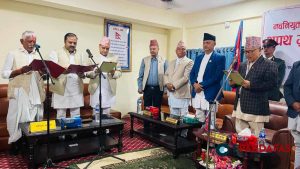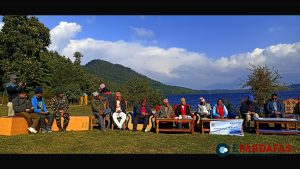
“Agnipath is game-changer for Armed Forces,” says book that marks 9-year anniversary of PM Modi govt

Agnipath is a game-changer scheme for the Armed Forces which will act as a force multiplier for making the Indian military one of the best in the world with a youthful, high-tech and ultra-modern outlook, stated a book titled “9 years: Seva, Sushasan, Garib Kalyan” issued by the PM Modi-led central government to mark its 9-year anniversary in two successive terms.
The Government launched the Agnipath scheme on June 15, 2022, to recruit both male and female aspirants into the ‘below the officer’s rank’ cadre of the three services for a period of four years as Agniveers. Candidates between the age group of 17.5 and 21 years are eligible to apply for the scheme.
The PM Narendra Modi-led government has envisioned and executed a dynamic and transformative foreign policy that is outcome-oriented, development-focused and in harmony with the government’s vision of “sabka saath, sabka vikas, sabka vishwas and sabka prayas”.
The book mentioned that one of the milestones of the PM Modi government is the eight-fold surge in India’s defence exports.
From INR 1941 Crore in 2014, India’s defence exports increased and reached INR 16,000 Crore in the year 2022-2023.
National security has been a top priority for the Modi government.
This can be seen in rescue operations conducted outside India, adopting a zero-tolerance against terror policy at home, as well as a significant reduction in left-wing extremism. The Prime Minister’s firm belief that development and national security go hand in hand has led to a push for Aatmanirbharta in Defence. India’s first indigenous aircraft carrier INS Vikrant showcases the country’s growing prowess for indigenous manufacturing, a government release said.
To foster innovation and technology development, the Innovation for Defence Excellence (iDEX) framework was launched.
It has played a pivotal role in supporting start-ups and innovators for successful prototype development, a government release said.
The primary focus of India’s foreign policy remains its immediate neighbourhood, under the ‘Neighborhood First Policy’. This is supported by the revitalized ‘Act East’, ‘Think West’ and ‘Connect Central Asia’ policies that seek to enhance our engagement in our extended neighbourhood, the government said in a press release.
The Government’s vision of ‘Security and Growth for All in the Region’ – ‘SAGAR’- is designed to strengthen ties with like-minded partners to promote a rule-based order across the ‘Indo-Pacific’.
New initiatives like International Solar Alliance (ISA), Coalition for Disaster Resilient Infrastructure (CDRI), Lifestyle for Environment (LiFE), and International Big Cat Alliance (IBCA) have strengthened our multilateral relations with the world.
In keeping with the Government’s goal to expand India’s footprint worldwide, proactive action has also been taken to increase the number of missions, consulates and representative offices. India took over the G20 Presidency on December 1, 2022, a government release said.
The theme for India’s Presidency “Vasudhaiva Kutumbakam” or “One Earth-One Family-One Future” is uniquely Indian and has been widely appreciated.
India has recently crossed the milestone of 100 G20 meetings. As of April 2023, over 12,300 delegates, from over 110 nationalities have attended G20-related meetings. This includes participation from G20 members, invitee countries and international organizations.
Through the use of e-governance tools India’s consular operations have been made amongst the fastest, most transparent and user-friendly, globally, a government release said.
India has signed Social Security Agreements to protect the interest of Indian workers abroad, Agreements to enhance the joint mobility of students, professionals and researchers and Agreements with several nations to prevent illegal migration.
India continues to play a pivotal role as the ‘First Responder’ during times of humanitarian crises. The setting up of the Rapid Response Cell as a specialized division in the Ministry of External Affairs to coordinate efforts during humanitarian crises has made disaster protocols more resilient.
India has taken up several significant relief and evacuation operations during the last nine years such as Operation Dost (2023), Operation Ganga (2022), Operation Devi Shakti (2021) and Mission Sagar (2021), to name a few.
A dynamic foreign policy and national security policy are essential to respond to the opportunities and challenges of the world today. The PM Modi government has consistently delivered on that front to create a stable, strong, and safe nation. (ANI)












Comments